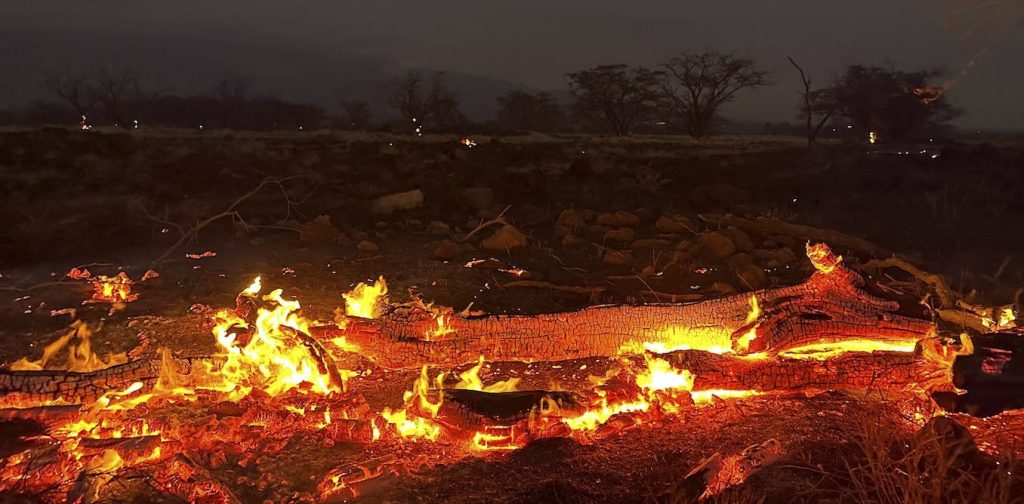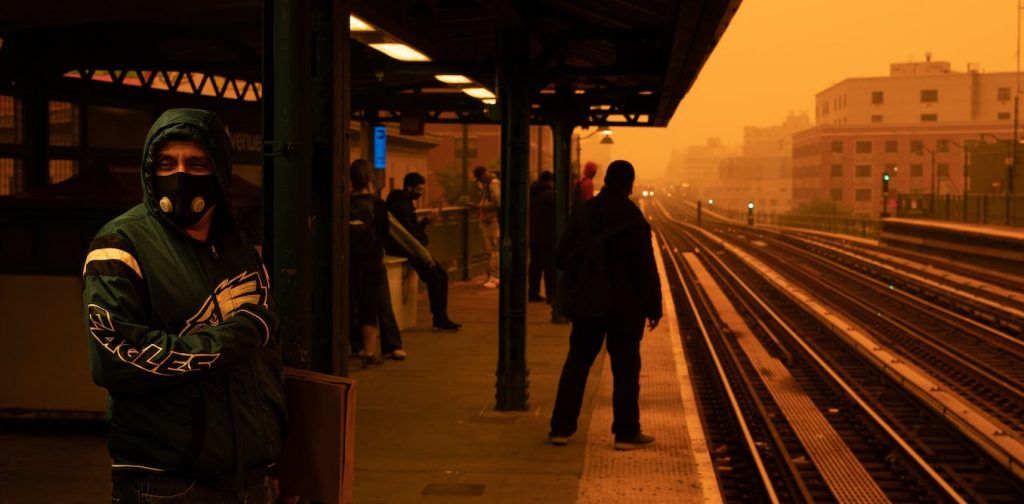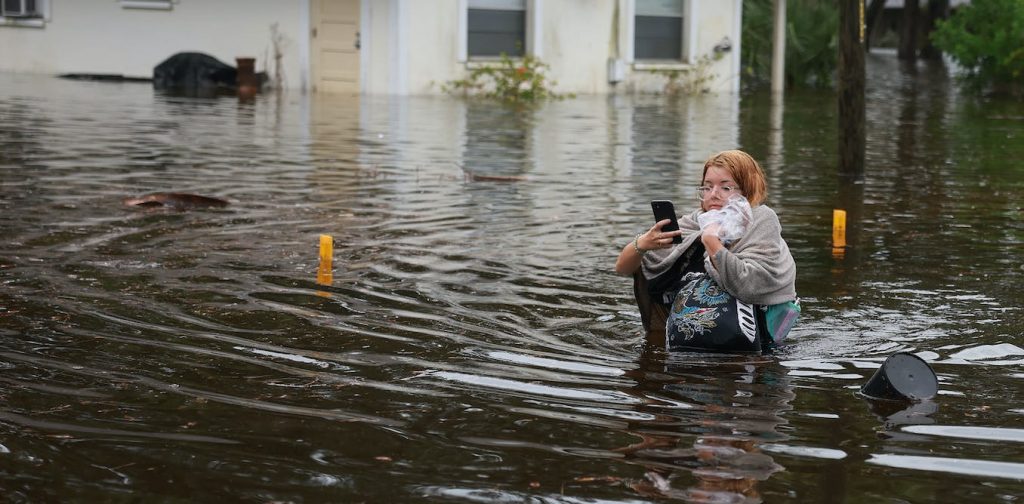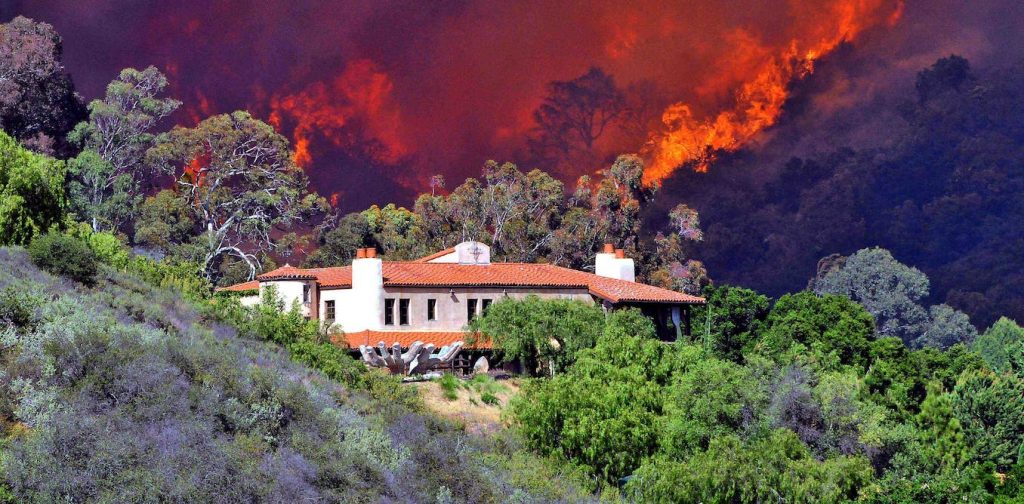Want to help Maui’s animals after the wildfires? Send cash, not kibble
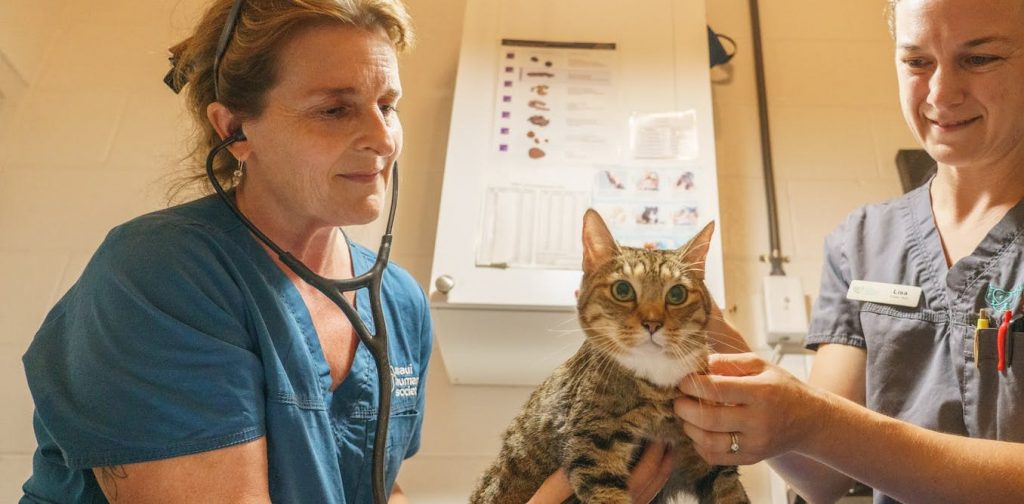
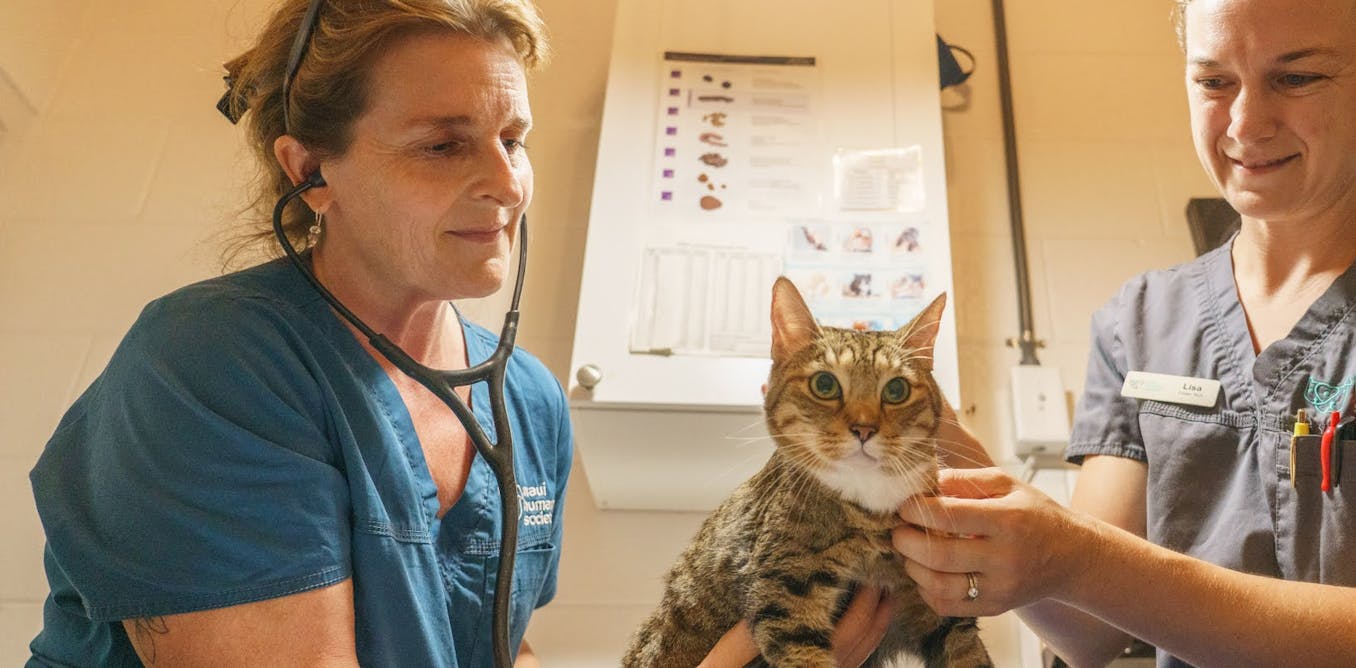
An estimated 3,000 pets were still missing more than a week after deadly wildfires ripped through Maui in August 2023 and left thousands of people – many of whom had companion animals – homeless. The Conversation asked Sarah DeYoung, who has conducted research in Hawaii and studies what happens to pets after disasters, to explain why rescuing companion animals is a high priority following wildfires and how donors can help animals and pet owners recover from this disaster.
What happens to pets after a catastrophic fire?
When disasters strike, people often evacuate with their pets, as long as it’s possible for them to quickly grab their dogs, cats or other kinds of companion animals. However, you may not have time to gather your animals during a quick-onset event like a wildfire, or your animals might be hiding.
This is especially true for cats, because they can be skittish. There are other complications, such as evacuation by boat – which makes it harder to bring animals along. When owners flee without a leash or carrier, their animals might bolt at any stopover or shelter.
Unfortunately, companion animals can become injured or perish during fires. Many animals will also be lost and displaced.
Owners will spend weeks, months or even years after a fire searching for their missing cats and dogs. It can be challenging to identify and match pets with their humans because burn injuries can change the animal’s appearance, they may not have a microchip, or the owners themselves may have died in the fire.
Like people, animals that survive fires may experience trauma and stress symptoms, such as regressing on housetraining or other issues for days and weeks after the fire. The pets may need quiet time and support to recover from their stress. They may also need to be treated for burn injuries or lung damage from inhaling smoke. Some animals may not survive their injuries.
What are the extra challenges on an island?
Islands have limited space for the boarding and care of displaced animals. For example, during the 2018 lava flows on Hawaii’s Big Island, in which over 2,000 people evacuated, the logistics for people and animals presented unique challenges.
People who lose their housing for any reason may need to board their pets. Unfortunately, nearly all of Hawaii’s animal shelters are already at full capacity due to the state’s pet overpopulation, leaving little space available during emergencies.
Smaller animal sanctuaries may take in animals temporarily, but they also have limited space and staffing. Because of these challenges, animal-foster networks become key during and after disasters. Truly stray animals – cats, dogs and other animals that belong in homes but live on the streets – can also be flown to other places for adoption.
But before that happens, it’s critical to first make every effort to reunite lost companion animals with their owners.
Is aid for animals worth it when people are suffering?
Many people love their animals and see them as part of their family.
In Hawaii, during the 2018 lava flows, I heard many people call their pets their “keiki” – the Hawaiian word for children. Losing pets is often devastating.
Improving animal welfare will ultimately also help people because of the bond between humans and animals. People experience psychological distress when their pets are killed, injured or lost. Additionally, if people cannot safely evacuate with their pets, they might refuse to leave during disasters.
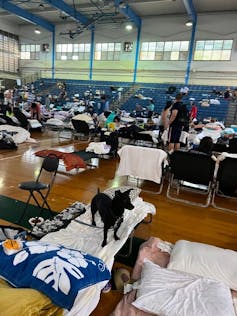
That’s why emergency shelters should allow people to stay with their pets if possible. Hotels or other providers should also consider temporarily waiving pet fees and relaxing their restrictions on companion animals to reduce barriers for displaced people and their pets.
People who lose their animals in a fire may experience depression and other mental health issues, which is one of the many reasons why mental health care is essential for the communities that experience disasters.
If a companion animal has died in a fire, it helps the owners to get confirmation that the death occurred because of their need for closure. Some pet owners and community members construct shrines, memorials or other structures to memorialize the pets that died in the disaster. After the 2018 Camp Fire in California, people in the scorched town of Paradise constructed a memorial for the animals they lost.
Are there long-term problems for animal recovery?
In a place like Maui that gets many visitors and has a high percentage of vacation rentals, there will likely be challenges in terms of displaced local people finding rental units that accept pets. Many available housing units might have restrictive pet policies.
In my research with Ashley Farmer of Illinois State University, we found that people sometimes surrender their pets after disasters because they can’t find temporary housing that allows dogs or cats, or due to breed restrictions. A wave of animal surrenders causes already full shelters to become overcrowded.
There will be a need for some of those surrendered animals to be adopted or fostered for a longer period of time to ensure that there is enough room in local shelters. People will also need help as they continue searching for their missing animals.
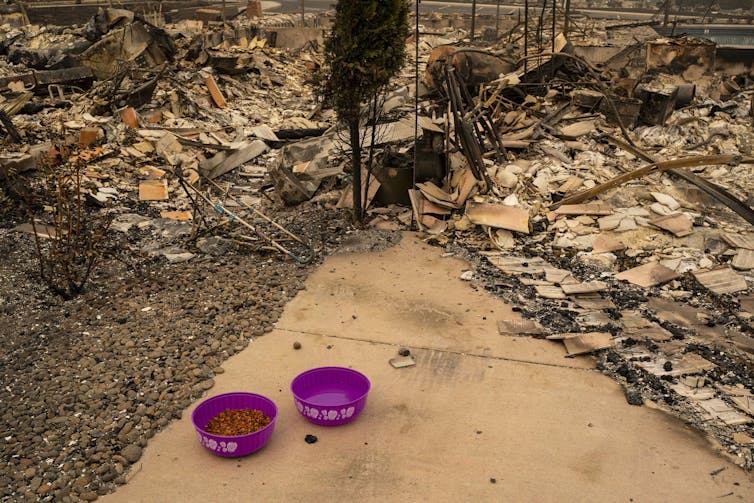 Animal rescue teams leave bowls of food and water out as they search for missing pets after wildfires. David Ryder/Getty Images
Animal rescue teams leave bowls of food and water out as they search for missing pets after wildfires. David Ryder/Getty Images
What’s the best way to help?
In the college classes I teach regarding disaster response and recovery, I often emphasize the difference between intentions and impacts when it comes to volunteering, donations and other relief efforts.
Animal lovers in other places will often want to donate big bags of kibble, canned food, chew toys, dog crates and other physical items. As an animal lover myself, I can appreciate their great intentions and eagerness to help.
But shipping those items may not be helpful after disasters, and in fact, those donations may even be harmful. While conducting research in disaster zones, I’ve seen animal shelters get inundated with donated pet food that expired before it could be consumed.
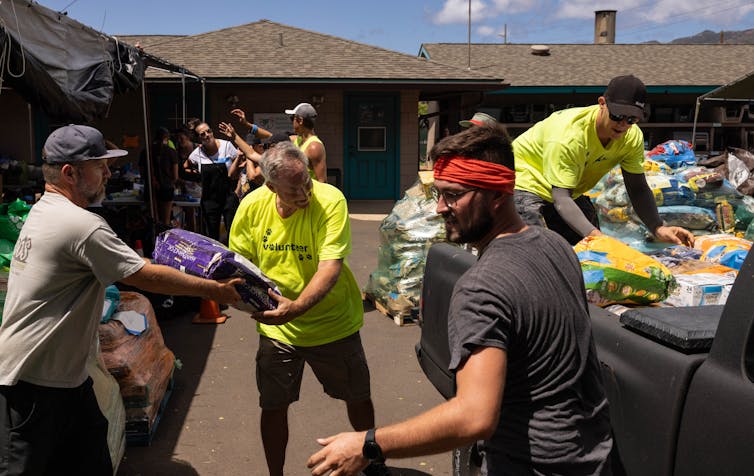 Volunteers sort donated pet food at the Maui Humane Society on Aug. 15, 2023. Yuki Iwamura/AFP via Getty Images
Volunteers sort donated pet food at the Maui Humane Society on Aug. 15, 2023. Yuki Iwamura/AFP via Getty Images
Unless local animal shelters have robust distribution systems, the logistics of dealing with massive amounts of donated supplies can become overwhelming. It’s much more effective for donors who want to help companion animals and their owners after disasters to give organizations like the Maui Humane Society money. Those funds can pay for urgently needed goods and services, including spay and neuter surgeries and flea treatments.
My research team has seen that people in locations far away sometimes want to adopt a “disaster pet.” While some animals might be relocated from the islands eventually, the best way to immediately help is to give money to groups supporting people and their pets. This increases the chances that the people and animals who are already bonded to one another can stay together.
Keep in mind that animal shelters and other organizations that support pets and their owners after disasters will still need help months after the media has moved on. In other fire events, such as the Tubbs and Camp fires in California, animal organizations used the recovery phase as a time to trap and neuter feral cats, and then return them to the communities where they were living. Simultaneously, those organizations can keep on helping to reunite missing pets with their owners.
Finally, I believe it’s important to be compassionate toward people who lost pets in the Maui fire since they may be in mourning for quite a while. Losing a beloved cat, dog, rabbit, goat or turtle can be devastating at any time. During a disaster, the loss of a pet amplifies the overall horror of the event. Similarly, reuniting with a missing disaster pet can also be a symbol of hope and recovery.
